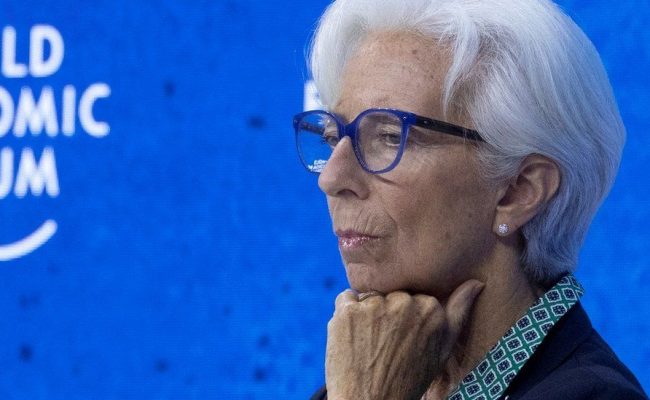Eurozone raises interest rates for first time in 11 years
- Posted on
- Comment

The European Central Bank (ECB) has raised interest rates for the first time in more than 11 years as it tries to control soaring eurozone inflation.
The ECB increased its key interest rate by 0.5 percentage points to 0.0% and plans further increases this year.
The rate has been negative since 2014 in a bid to boost the bloc’s economy after years of weak growth.
But inflation – the rate at which prices rise – is now at a record 8.6% as food, fuel and energy costs soar.
That is well above the bank’s 2% target.
Explaining its decision, ECB president Christine Lagarde said: “Economic activity [in the eurozone] is slowing. Russia’s unjustified aggression towards Ukraine is an ongoing drag on growth.”
She said that while tourism was likely to boost the bloc this summer, high inflation and continued supply chain issues would have “a dampening effect on the economy”.
The Ukraine war and Covid supply chain issues have driven up everyday costs around the world, putting pressure on households and dragging on growth.
The European Union is vulnerable to inflation because it relies heavily on Russia for its oil and gas. This week it urged member states to begin rationing supplies amid fears Moscow will halt gas deliveries this year, causing shortages and further price rises.
Central banks around the world have put up their rates in response, including the Bank of England and the US Federal Reserve.
The idea is that by making it more expensive to borrow money, people will spend less, which brings down demand and therefore prices.
But there are also concerns that increasing rates could push the eurozone into a recession – which is defined as two successive quarters of economic decline.
The ECB said that further rate hikes “will be appropriate”, and said it would take a “meeting-by-meeting” approach to raising rates.
“We expect inflation to remain undesirably high for some time owing to continued pressure from energy and food prices and pipeline pressures in the pricing chain,” Ms La Garde added.
“Higher inflation pressures are also stemming from the depreciation of the euro exchange rate.”
The ECB began cutting interest rates after the 2008 financial crisis to stimulate growth, and took them as low as -0.5% during the pandemic.
However, earlier this year it signalled it planned to increase them again, although economists had only expected an increase of 0.25 percentage points in July.
-BBC






 (Selorm) |
(Selorm) |  (Nana Kwesi)
(Nana Kwesi)